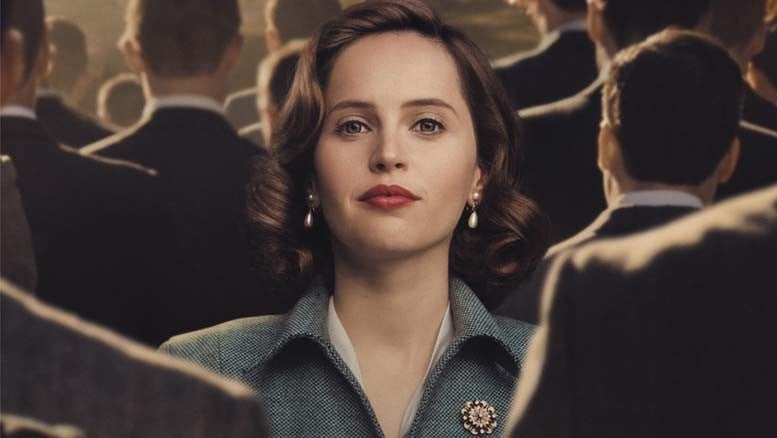
This biopic reminds one how difficult the struggle for equality is

Dear all,
The new film On the Basis of Sex is a biopic of US Supreme Court Judge Ruth Bader Ginsburg, focusing on the phase of her life that leads up to a case she pleads in 1972 which changes the course of both the US constitutional law as well as gender equality.
Bader Ginsburg is something of modern day legend: a powerful advocate for civil rights and a campaigner against gender discrimination. She has been an influential jurist for over five decades. Although most people have heard of her and perhaps seen a photo or two of the indomitable 86 year old, the film is a timely reminder of how hard-won were many of the freedoms women now take so much for granted.
The film begins in 1956 with Bader Ginsburg entering Harvard Law School, where her husband is already enrolled in the year above her. What we see is a milieu dominated by white men who are arrogant about the privilege they enjoy and are largely dismissive of women as peers. The underlying assumption in this world is that it is the natural order of things for women to stay in the home because their basic purpose in life is to be good wives and mothers.
In one telling scene from the film the Harvard Law School Dean asks the women beginning their law degree to explain who they are, where they are from and "why they are occupying a place at Harvard that could have gone to a man". The sneery undertone is a rebuke implying that somehow a great injustice has been done to men who have had to concede their privilege to the ‘little ladies’.
We see young Bader Ginsburg excel academically and yet be discriminated against. Despite her stellar law school record nobody is prepared to give her a job as a lawyer; with one initially sympathetic interviewer telling her (after staring at her chest), that the firm doesn’t employ women as lawyers because… the wives wouldn’t like it. This chauvinism and discrimination is effectively conveyed in the little period details the film takes care to include. But it is quite shocking to be reminded that this was actually the case less than a century ago.
Director Mimi Leder’s film has been criticised for being ‘bland’ and superficial and for failing to do justice to the rather exceptional subject whose story it depicts, but actually Leder uses conventional storytelling to tell, very effectively, a great story about chauvinism and privilege and of fighting for what one believes in.
The mood of the time is excellently conveyed: one example is the reaction of the same Law School Dean (later US Attorney General) who is depicted as being outraged by the gender discrimination basis of a pioneering case when he exclaims, "They think gender equality is a civil right?"
That really is the whole point: gender equality is a civil right and this is something that we in the 21st century must be particularly mindful of.
Although we have moved into a climate where both men and women appear to have more choices, many of the old stereotypes and power structures remain. The way Trump has swept into power on the shoulders of so many privileged white men, who somehow feel they are at the danger of extinction, illustrates how deep the cuts are for those whose privilege has been undermined. The way the film re-creates an era of hope and idealism where fighting for equal rights is seen as noble rather than as ‘treasonous’, is inspiring. It’s a sort of wake up call and reminder to many of us, particularly modern day young women, that ending discriminatory laws has consisted of many difficult battles, and we should now guard our freedoms and the concept of equal rights with both vigilance and fervour.
Best wishes